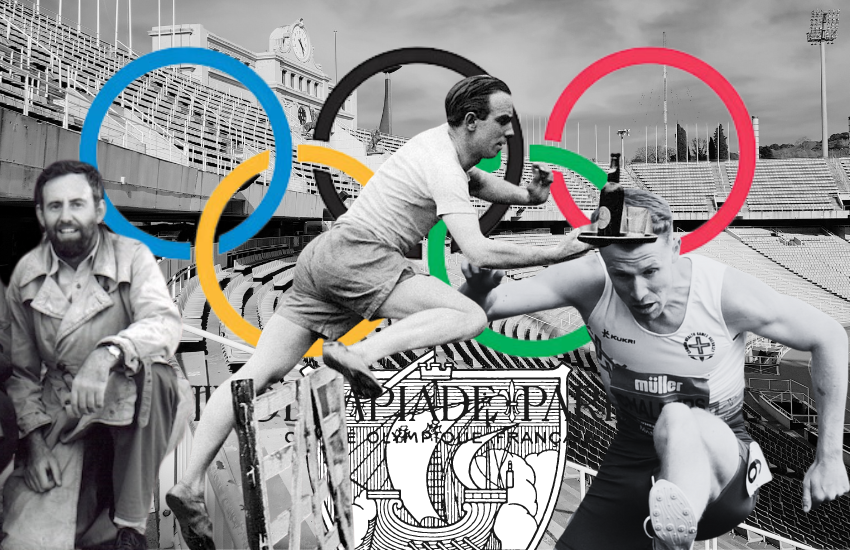

Who is Guernsey’s only Olympic individual gold medalist and what was his party trick?
Who was the brains behind a long jump world record leap in 1964?
Who plotted GB’s men’s hockey success in Seoul?
Who looked after the legs of some of the greatest cyclists of all time?
Read on, and you will find out, because Guernsey has a deep sporting connection with the modern Olympics, not just through those competing but those behind the scenes too.
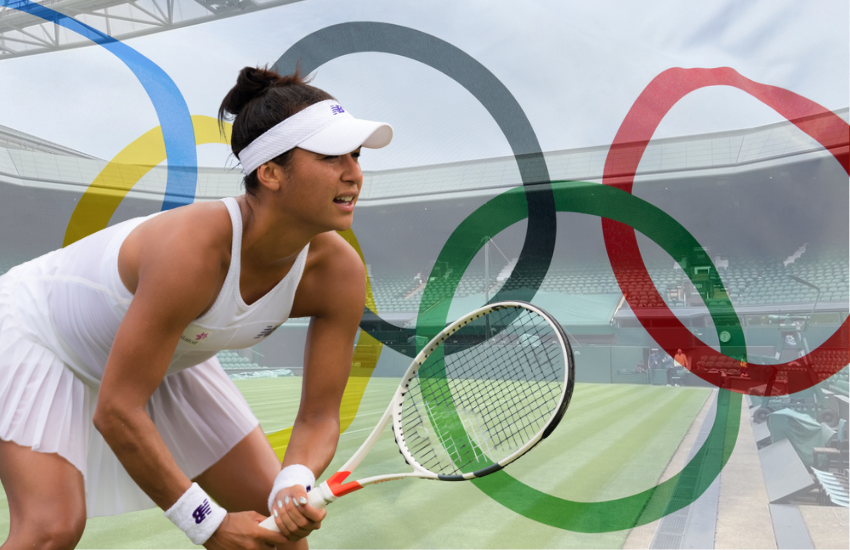
Pictured: Heather Watson will be competing in her fourth Olympics in Paris.
When Paris 2024 opens, 400m hurdler Alastair Chalmers will be making his Olympic debut having secured qualification in dramatic style.
Tennis star Heather Watson will become the first female tennis player to represent Team GB at four Olympic Games, playing in the women’s doubles with Katie Boulter.
Bailwick's best hope for a medal rests with Sark’s Carl Hester, who will be at his seventh Olympics competing in the dressage, having already collected a team gold at London 2012, team silver in Rio four years later and team bronze last time out in Tokyo.
His Olympic influence also extends to mentoring and working with teammate Charlotte Dujardin. Hester owned Valegro, who Dujardin rode to gold in London.
Guernsey’s champagne moment
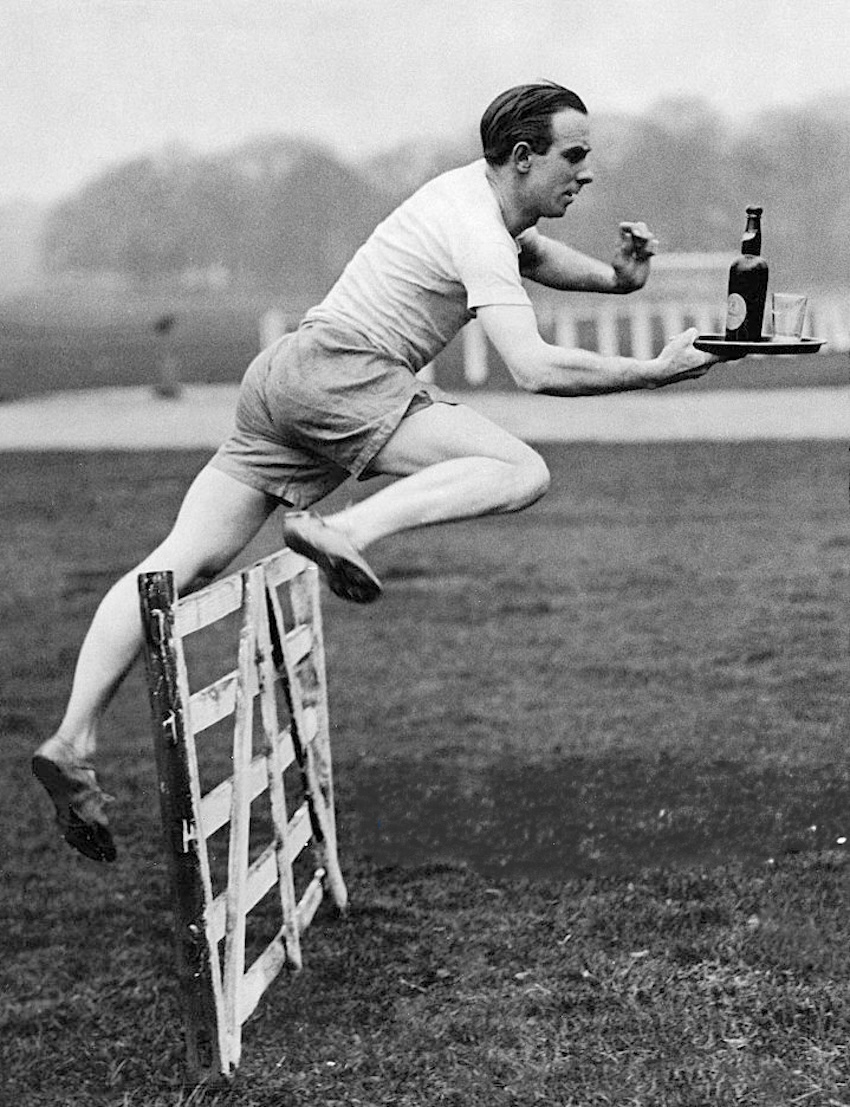
Pictured: Percy Hodge, gold medalist in 1920.
While we are on medals, let’s take a time machine back to 1920.
The Olympics that year were in Antwerp and one of the favourites for the 3000m steeplechase was Percy Hodge, who was born and educated in Guernsey.
Hodge was the fastest heat winner, his time of 10:17.4 seconds represented something considerably faster than he had ever run over the "English" distance of two miles.
Well supported by other members of the British team, Hodge won the gold medal by a convincing margin of 100 metres.
Hodge had a highly unusual style of hurdling and could clear the barriers carrying a tray, complete with bottle and glasses, and not spill a drop.
He was inducted into the England Athletics Hall of Fame - the trophy is with Guernsey Athletics after being donated by the family - following in the footsteps of a great athletics coach born in the island we will meet later.
Athletics has been a happy hunting ground when it comes to Olympic qualification.
Dale Garland was a member of GB’s 4x400m relay squad for Beijing 2008, although he did not run, and Cameron Chalmers ran for both the mens and mixed 4x400m teams in Tokyo four years ago.
Nothing is simple
Cameron’s brother Alastair’s route to qualification this time around was far from straightforward. He was fractions off the standard in the European Championships, before bad weather and misfortune hampered a couple more attempts. Then at the nationals, his last chance to make the team, he won the final, breaking the time needed, but was running under protest after a false start. His complaint about noise in the stadium was upheld and with it his Olympic spot assured.
Selection drama is something of a trend for our athletes.
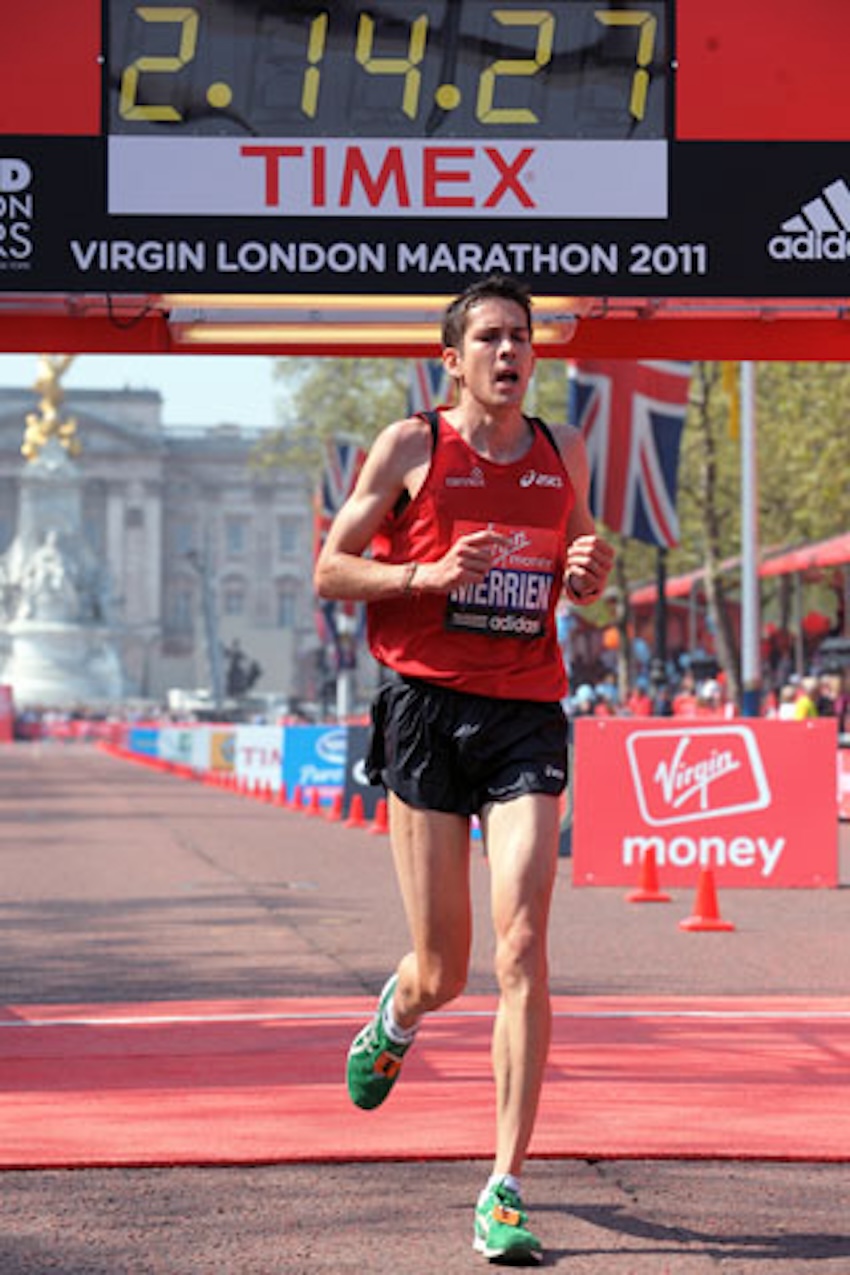
Pictured: Lee Merrien crosses the line in the 2011 London Marathon.
Marathon runner Lee Merrien’s Olympics also nearly did not happen.
Merrien was the top British runner at the 2011 and 2012 London Marathons, running the latter in a lifetime best 2:13.41, inside the standard set by the International Association of Athletics Federations but outside UK Athletics’ of 2:12.
The selectors initially picked Scott Overall and Dave Webb, but left the third spot vacant.
An online campaign to get Merrien selected gathered 3000 followers, but an initial appeal was thrown out before the selectors then reversed their decision.
In the end, Merrien was the highest placed Britain in London 2012, finishing 30th.
A laid-back man behind Olympic success
One of the most influential athletics coaches was born and educated in Guernsey.
John Le Masurier, known as Le Maz, was coach of the Great Britain Team at five successive Olympic Games.
His time spanned Rome 1960, Tokyo 1964, Mexico City 1968, Munich 1972 and Montreal 1976.
But he will perhaps best be known for coaching Mary Rand to the 1964 Olympic long jump title, when she leapt to a new world record of 6.76m. She also won silver in the Pentathlon and was part of the bronze medal winning 4x100m team.
Le Masurier was inducted into the England Athletics Hall of Fame in 2010.
He died aged 97 in 2014, promoting Athletics Weekly to write: “known for his mild, laid-back approach to coaching, Guernsey-born Le Masurier was hugely respected and his versatility saw him help athletes – from sprinters and cross country runners to throwers and jumpers – to reach their potential with his quiet authority, gentle persuasion and wide-ranging knowledge.”
High jumper Gordon Miller was part of the British team being led by Le Maz in 1960 and 1964, he went on to be a coach for Guernsey Athletics, guiding some of the island’s top athletes.
It was the days before the now common Frosby flop technique, Miller qualified in equal 13th place for the final with a jump of 2m. In the final, Miller didn't improve on his qualifying height and finished 16th.
His final international meet was at the 1964 Summer Olympics in Tokyo. Miller cleared the qualifying height of 2.06m, however in the final the best he could manage was 2.03 m for 18th.
Guernsey has also found itself as becoming home to people who’s Olympic adventures came before they settled in the island.
One of them was Cyril Dugmore, a British Army officer who fought in the Boer War and on the Western Front in World War One. He competed in the 1908 London Olympics, finishing 11th in the triple jump.
Dugmore and his brothers spent time at Elizabeth College.
He died in 1966 while living in St Sampsons.
Managing success through authority and inspiration
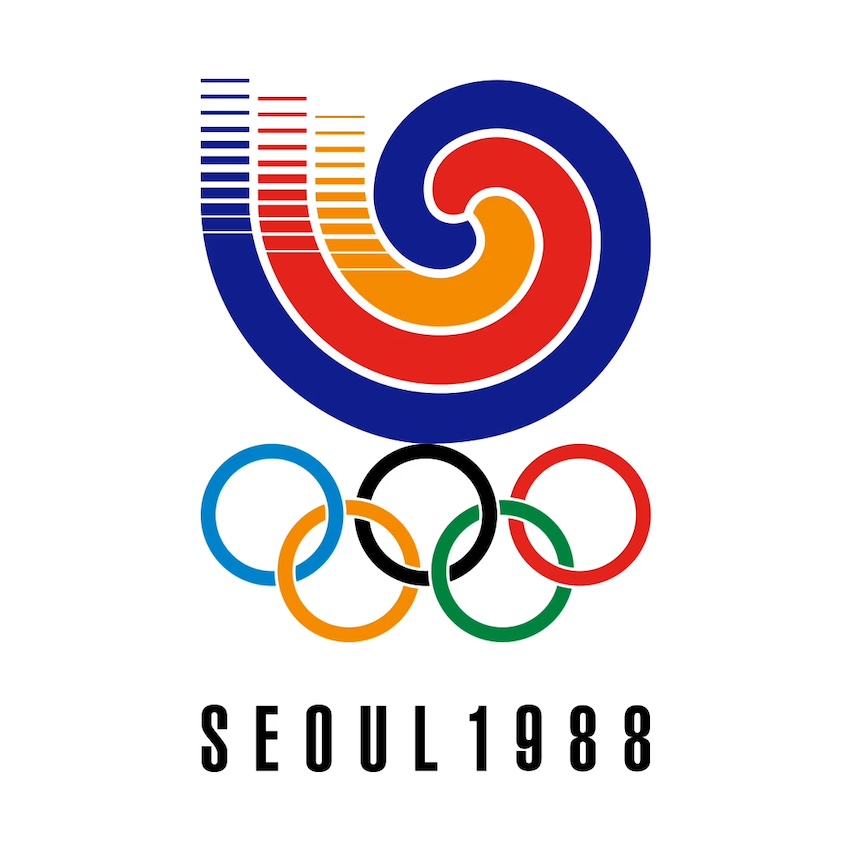
Moving over to hockey and we find a Guernseyman’s fingerprints over more success.
Roger Self, born here in 1940 and another Elizabathen, managed and coached the GB men’s teams between 1978 and 1988, turning around a period of decline and leading them to a bronze medal in 1984 and gold in Seoul four years later where he inspired the players to a famous 3-2 win over West Germany.
His influence was recognised by the team.
In 2008 forward Sean Kerly said: “He was determined to build us mentally strong and supplied the ‘hockey intelligence’. He used to make and break us, again and again. It was not much fun but we realised afterwards, how important it was.”
Another Olympic hockey link comes through Mary Vick, who was born in Guernsey in 1922. Vick excelled in sport and toured with the England Hockey team in the US in 1947 before moving into sports administration after retiring from playing. She was the first chair of the Great Britain Women’s Olympic Hockey Board.
A Lt Governor who won gold a century ago
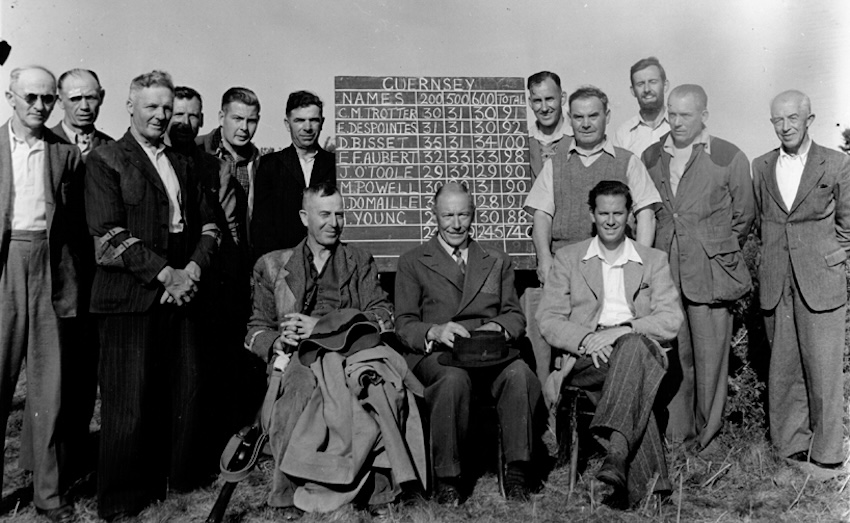
Pictured: Sir Philip Neame, seated centre, and Charles Trotter, standing third from right.
Two members of the Guernsey Rifle Club are part of the Olympic story, Sir Philp Neame and Charles Trotter.
Sir Phillip holds the distinction of being the only man to win an Olympic gold medal, in Paris a century ago, and be awarded the Victoria Cross.
That gold came in the running deer, double shot, team event. It involved teams of four shooting at a moving target that simulated the animal.
It was in December 1914 that he won the VC at Neuve Chapelle on the Western Front.
He served as Guernsey’s Lieutenant-Governor from 1945-53.
Another key figure in the Guernsey team during the 1950s and the decades to come was Charles Trotter, who appeared for British Kenya in the smallbore events at both the Melbourne and Rome Olympics in 1956 and 1960.
While never placing higher than 37th at the Games, in 1975 Trotter won arguably shooting's greatest honour, HM The Queen’s Prize, and was a prolific smallbore and fullbore shooter for almost fifty years for Guernsey, Hampshire and Scotland.
Pistol shooter Adrian Breton has gone down in history as one of the island’s all-time greats and was one of the first inducted into Guernsey Sporting Hall of Fame.
As well as winning gold, silver and bronze in the Commonwealth Games, he competed with distinction at the 1988 Olympics in Seoul and four years later in Barcelona.
Back to London
One of the iconic moments of the London Olympics of 2012 was when British cyclist Bradley Wiggins claimed a record seventh Olympic medal with gold in the men’s time trial.
It followed his victory at the Tour de France with Team Sky, the first for a British rider.
Claiming the bronze that day in the TT was British teammate Chris Froome, who would go on to win the tour four times.
In the women’s road race, Lizzie Deignan secured silver.
One of those behind the scenes of this British success was Guernsey’s Dan Guillemette, who was physiotherapist to the GB men’s and women’s road cycling teams that year.
Guillemette has now been involved in professional cycling for more than a decade, working as lead physiotherapist with Team Sky from 2012 and since 2018 with Australian pro team Jayco-AlUla.
He is also currently working with the Australian National team.
Do you know of more Guernsey Olympic connections? Email your ideas to nick@bailiwickexpress.com
Comments
Comments on this story express the views of the commentator only, not Bailiwick Publishing. We are unable to guarantee the accuracy of any of those comments.